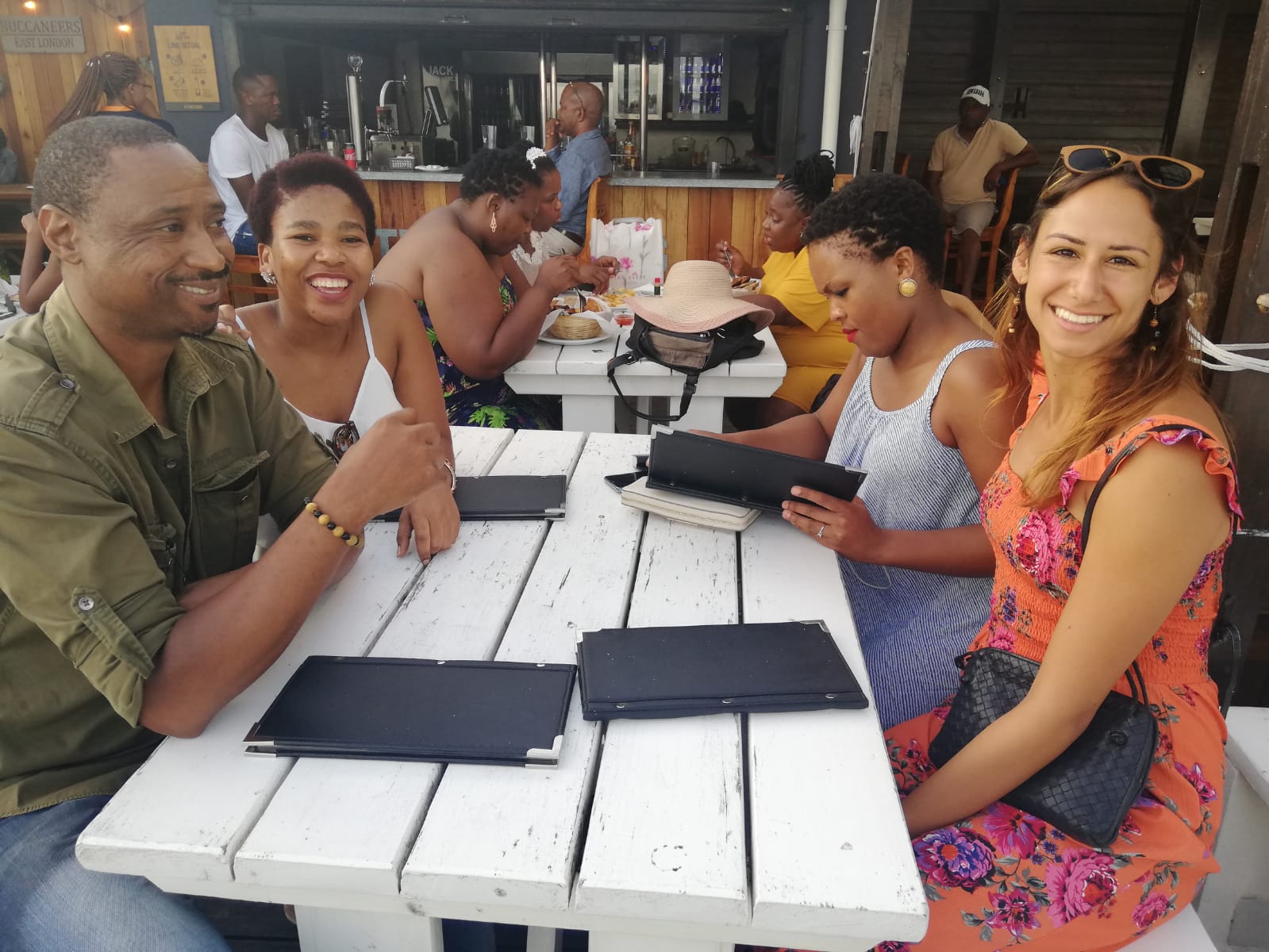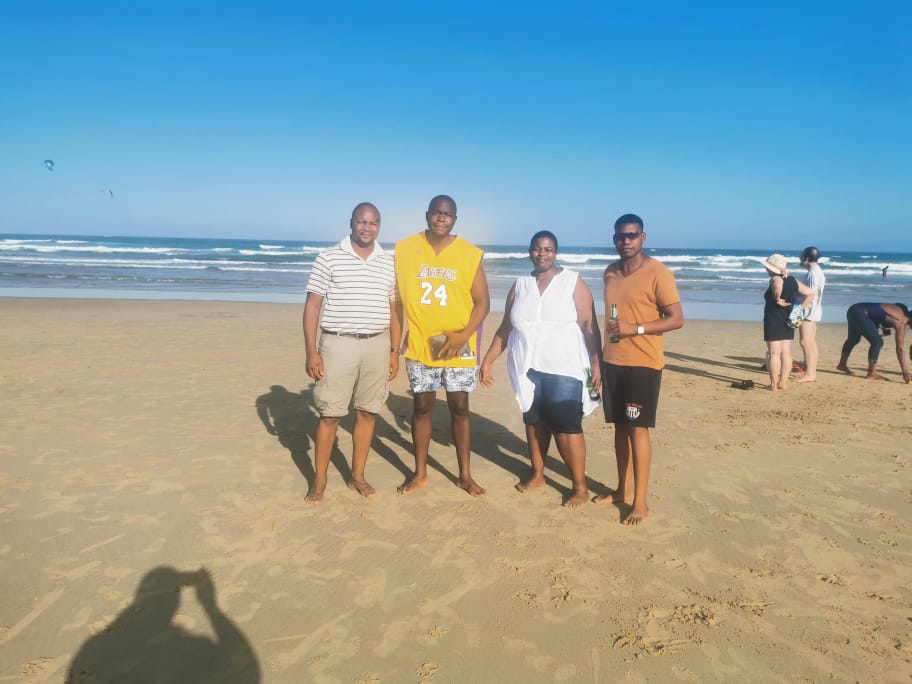Another Successful USDP Summer School

The second University Staff Doctorate Programme (USDP) Summer School was hosted by the University of Fort Hare in East London earlier this year. The USDP is a project funded by the Department of Higher Education and Training (DHET) which aims to develop collaborative professional development opportunities for staff in higher education institutions in South Africa and the United States.
This project brings together universities from South African and the United States to help transform South African academic expertise relating to ‘Climate risk, resilience, and sustainable development’. The partnership includes the University of Cape Town, the University of Fort Hare, the University of Venda from South Africa, the University of Arizona, and Penn State University from the United States.
The Summer School was attended by 10 USDP scholars and one Remote Sensing for Urban and Rural Development and Resilience (ReSiDeR) Scholar. Supervisors also joined mid-week to further enrich the experience. The ReSiDeR project is a partnership across three universities which offers a PhD programme specialising in GIS.

An invite was extended to postgraduate students from the University of Fort Hare. This year’s programme focus was on research methods which were linked to the scholars’ areas of study like GIS, Agricultural Economics, modelling approaches, and qualitative research approaches. We also covered presentation skills, accessing and integrating climate change information into research and policies, and research portals. The final day topic focused on building an academic career, as this is one of the objectives of the programme.
The Summer School had great speakers, including Prof Godwell Nhamo, Dr Luvuyo Dondolo, and Dr Jess Cockburn, that linked to the programme objectives of Sustainable Development Goals (SDGs) and Interdisciplinarity. Prof Godwell Nhamo spoke on the Green Economy and linked this to SDGs. Prof Nhamo is a Professor and Exxaro Chair in Business and Climate Change at the University of South Africa (UNISA). Prof Nhamo has conceptualised and successfully completed eight book projects and published over 80 journal articles. His most recent books include: The Green Building Evolution, and Scaling up SDGs Implementation: Emerging cases from state, development and private sectors.
Dr Luvuyo Dondolo is the head of the Centre for Transdisciplinary Studies at Fort Hare. He provided an overview of the centre, and spoke of the successes and challenges of teaching Transdisciplinary studies to undergraduates. He explained that the centre was born out of an institution that was undergoing transformation. Dr Dondolo said that the centre’s grounding programme helps students be more conscious, critical and creative, rather than overly prescriptive.
Dr Dondolo is currently working on a book project involving Robert Mangaliso Sobukwe’s political philosophic thought. Dr Dondolo has co-authored a book and published several journal and book chapters on different topics. He has also presented numerous academic articles in various international and national conferences.
The third guest speaker, Dr Jess Cockburn from Rhodes University, Environmental Learning Research Centre. Cockburn’s presentation focused on using case studies in transdisciplinary research, she based the presentation on her PhD study.
Presentations from the Summer School planning team, including those from Prof Maureen Reed, and project team members Dr Hector Chikoore and Prof Nthaduleni Nethengwe, were very well received. Dr Reed is a Distinguished Professor, Assistant Director, and UNESCO Co-Chair in Biocultural Diversity, Sustainability, Reconciliation and Renewal. She is based at the School of Environment and Sustainability, at the University of Saskatchewan in Canada. Dr Reed is internationally recognized for her work on conservation and sustainability practices of UNESCO Biosphere Reserves (BR) and an expert on gender and forestry in the global North. Dr Reed works with forestry communities and model forests, UNESCO BRs, and indigenous communities. Dr Reed has written or edited 11 books or monographs and has more than 100 primary publications. She played a lead role in founding of the interdisciplinary School of Environment and Sustainability.
Dr Chikoore and Prof Nethengwe are from the University of Venda, and are both supervisors of scholars on the programme, and members of the planning team.
Many felt that the highlight of the week was the Fieldtrip to Nahoon Beach which was linked to and accompanied by conversation on smart landscapes and landscape sustainability.
The next Summer School in 2021 will mark the final year of the USDP programme, and will be a bumper year, running in parallel with the SA-Flanders ADAPT and WEF Nexus Transformative Learning programmes. The 2021 Summer School will also focus on publications, grant writing, and furthering academic development post PhD.
